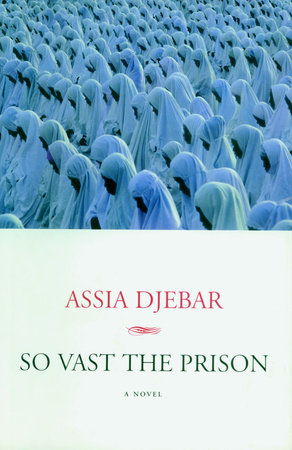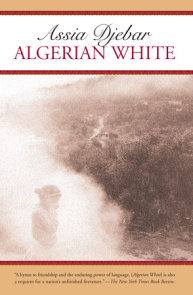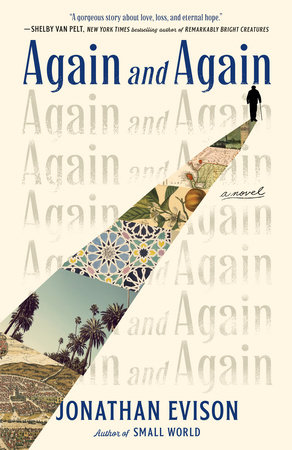

So Vast the Prison
By Assia Djebar
Translated by Betsy Wing
By Assia Djebar
Translated by Betsy Wing
By Assia Djebar
Translated by Betsy Wing
By Assia Djebar
Translated by Betsy Wing
By Assia Djebar
Translated by Betsy Wing
By Assia Djebar
Translated by Betsy Wing
Category: Literary Fiction | Women's Fiction | Essays & Literary Collections
Category: Literary Fiction | Women's Fiction | Essays & Literary Collections
Category: Literary Fiction | Women's Fiction | Essays & Literary Collections

-
$16.95
May 01, 2001 | ISBN 9781583220672
-
$24.95
Oct 05, 1999 | ISBN 9781583220092
-
Jan 04, 2011 | ISBN 9781609803056
YOU MAY ALSO LIKE
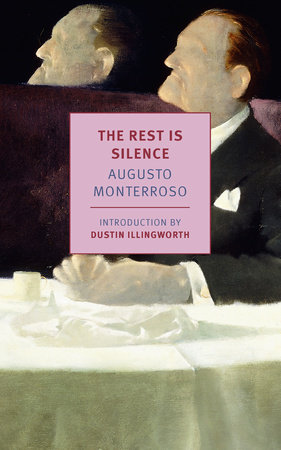
The Rest Is Silence
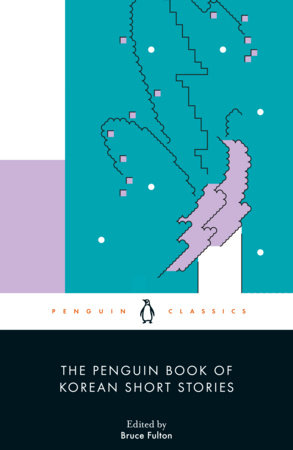
The Penguin Book of Korean Short Stories
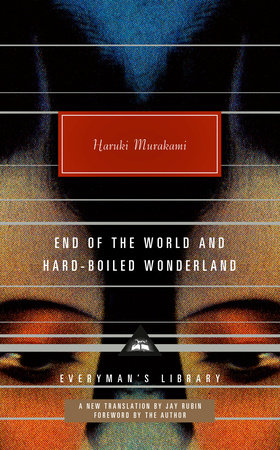
End of the World and Hard-Boiled Wonderland

The Hunter

Rental House

Birds, Beasts and a World Made New
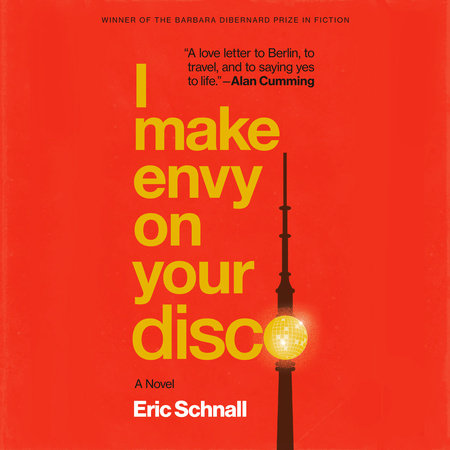
I Make Envy on Your Disco
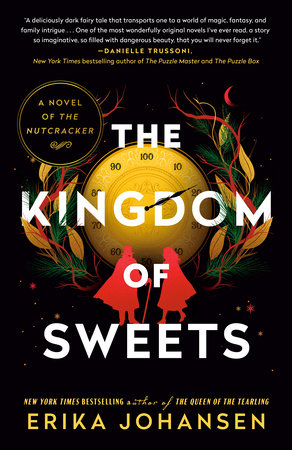
The Kingdom of Sweets

The Abolitionist’s Daughter
Praise
“Assia Djebar . . .has given weeping its words and longing its lyrics.” –William Gass
“Marx . . . wanted to be a ‘citizen of the world.’ Listening to Assia Djebar’s torn yet majestically flowing voice gives us some sense of what is involved in that admirable aspiration.” –Christopher Prendergast, Times Literary Suplement
“Writing becomes weapon and refuge for the oppressed in this fiercely intelligent, intricate novel set in a tragic, bewitching Algeria. Expressing the bitterness of being caught between traditional Islamic and modern European cultures, married 36-year-old Isma begins her story the summer she has an affair with a student. A highly educated musicologist, Isma is also governed by Islamic tradition. When her husband discovers her dalliance, he beats her, intending to blind her. The affair marks Isma’s awakening and the beginning of her quest for true independence, though she stays with her husband for a little while longer. When she finally leaves him, she embarks on a semi-documentary film project, to be called Arable Woman. Intertwining her experiences in the mountains filming peasant women with memories of her childhood and stories about her female ancestors and relatives, Isma weaves a complicated tapestry of images and sentiments. The tales she unearths are richly detailed and gracefully told, and the book becomes a moving common history of cultural exile and captivity. Djebar, winner of the 1996 Neustadt Prize for Contributions to World Literature, has a talent for narrating the stories of those who are ‘freed and voiceless’ without heavy-handed moralizing or judgment.” –Publishers Weekly
“From time to time, we hear about books that supposedly tear away the veil from the lives of Arab women. I don’t know anyone who has done this with more intelligence and passion . . . than Assia Djebar. That murmur beneath her images soon begins to sound like a roar.” –Alan Cheuse, All Things Considered
“[A] polymorphously lyrical novel by . . . Algeria’s foremost literary voice.” –Jonathan Levi, Los Angeles Times Book Review
21 Books You’ve Been Meaning to Read
Just for joining you’ll get personalized recommendations on your dashboard daily and features only for members.
Find Out More Join Now Sign In






